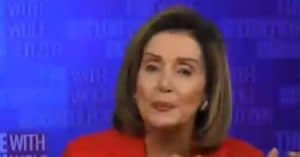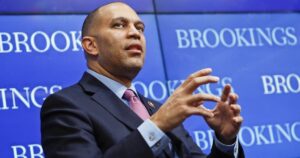Trump's Sentencing Date Set Before Inauguration
President-elect Donald Trump’s legal challenges intensified when his appeal to overturn convictions in a high-profile case was denied by a New York judge.
Despite the court’s decision, Trump, who has been elected the 47th President of the United States, will face no prison time and is set to be inaugurated on January 20, according to Fox News.
Background of the Legal Battle
Trump’s attempt to reverse his conviction in a criminal hush money case was rejected by Judge Juan Merchan. The denial came after Trump’s legal team attempted to leverage a U.S. Supreme Court ruling about presidential immunity. This decision prevents any sentence involving incarceration, keeping Trump's path to the presidency uninterrupted.
The president-elect's attorneys, seeking to vacate the verdict, based their arguments on interpretations of the Supreme Court's decisions related to immunity for presidents and former presidents from legal actions over official acts. However, the judge found no grounds for this defense in this non-official context.
Upcoming Sentencing Details Set in January
The official sentencing is slated for January 10 at 9:30 a.m., only days away from Trump's official assumption of the presidency. Judge Merchan, who is presiding over the case, offered Trump the option to attend this sentencing either in person or virtually. He has indicated that an "unconditional discharge" would be appropriate rather than imprisonment.
Further complicating the proceedings is a suggestion by the district attorney to maintain the guilty verdict while ceasing further court proceedings. This suggestion was declined to preserve Trump's opportunity for future appeals.
Legal Team's Stance and Appeals
In July, Trump's legal team filed a motion to overturn the 34 counts of falsifying business records, which followed a six-week trial. The judges and prosecutors cited evidence showing that no presidential acts were tied to the alleged falsifications, negating immunity claims.
A Trump spokesman, Steven Cheung, fiercely criticized Judge Merchan's decision, describing it as a breach of constitutional principles and an extension of politically motivated efforts against Trump. Cheung contended that the legal proceedings should be dismissed to allow Trump an unobstructed presidential transition.
Supreme Court Rulings and Immunity Implications
Despite the perceived protections stemming from the Supreme Court's rulings on presidential immunity, the trial's evidence limited those applications. The Court did uphold robust immunity protections but confined them to acts performed officially by presidents, which were deemed irrelevant to this case.
Trump's legal counsel argued the case should be discarded, echoing longstanding Justice Department stances on the immunity of sitting presidents. The Office of Legal Counsel traditionally bars federal indictments against incumbents, a point Trump's attorneys believe applies here given the continuity of the presidency.
Political Reactions and Future Steps
As the trial's decisions unfolded, Trump's team remained defiant, pledging ongoing legal battles against what they term as hoaxes. The political climate has been notably affected, with Trump's transition overshadowed by these legal entanglements.
Given Judge Merchan retains motions for dismissal under consideration, Trump's legal options are not exhausted. His attorneys persist in challenging the verdict and continue to point toward broader systemic biases.
Effect on Presidential Transition and Upcoming Challenges
The legal hurdles present significant concerns regarding Trump's focus on his inauguration and presidential duties. However, despite these challenges, Trump is poised to affirm his presidency without further immediate legal obstacles.
The New York case's closing phase is closely monitored, both for its immediate implications on Trump’s presidency and the broader legal precedents it may set. The resolutions connected to the case have implications stretching beyond legal realms, impacting political and public discourse.
As Trump and his aides prepare for the judicially non-disrupted transition, attention remains on the developments to learn whether the case concludes as definitively as suggested, with an "unconditional discharge" benchmarked as the likely outcome. The upcoming sentencing marks a pivotal chapter in an unprecedented legal affair surrounding someone soon to assume the U.S. presidency.




